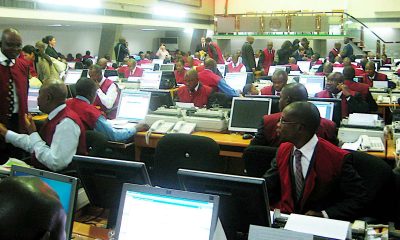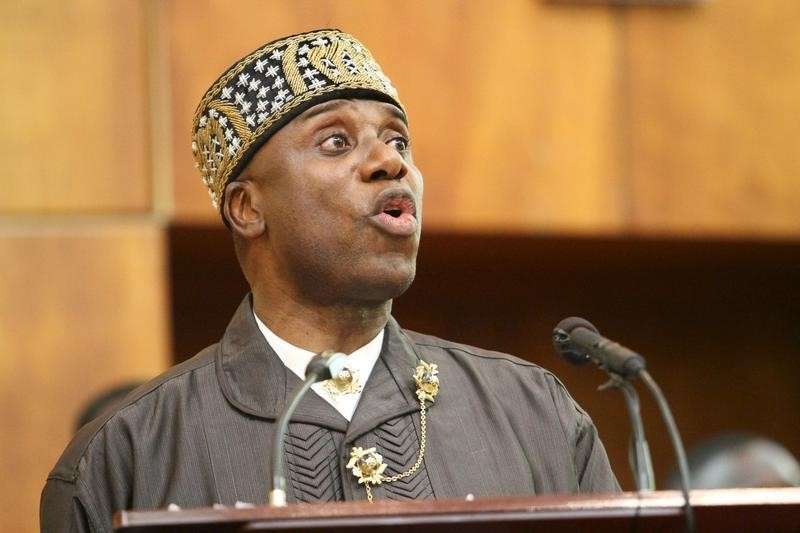By Richards Adeniyi
There are strong indications that Federal Government is seriously considering revocation of 2006 seaport concession agreements, due to alleged breaches of the major provisions of the agreement by the private terminal operators.
The Minster of Transportation, Rotimi Amaechi alluded to this Thursday during the stakeholders’ meeting on the lingering crisis the non-rehabilitation of ports access routes and the refusal of truck drivers to be off the road within Apapa have occasioned.
The meeting which was chaired by Vice President Yemi Osinbajo took place at the headquarters of the Western Naval Command (WNC) in Apapa.
According to Amaechi, he would submit the issue to the Federal Executive Council (FEC) for a possible revocation of the concessions because the concessionaires have stoutly refused to stick to the terms of agreement relating to their operations.
Prominent among these agreements is the undertaking that each private terminal operator must provide a holding bay for trucks that do business with it to avoid, among other things, a situation where these vehicles permanently occupy the ports access routes while waiting to enter or exit the ports.
According to him, “The concessionaires are not sticking to terms of agreement. We might have to go back to the FEC to ask for a revocation of the concessions. We are currently reviewing the concession agreement.”
Meanwhile, stakeholders at the meeting blamed the shipping companies, tank farm owners as well as the federal ministry of works for the congestion on the roads especially the now worrisome occupation of the Apapa/Oshodi expressway.
They regretted that while these companies and tank farm operators have refused to establish holding bays for their trucks, the works ministry has permanently refused to rehabilitate bad portions of the roads.
They also accused the shipping companies of deliberately fuelling the present traffic chaos through its demurrage policy which makes empty containers flood the roads so that they could beat deadlines and collect their money.
According to Hadiza Bala Usman, the Managing Director, Nigerian Ports Authority (NPA), by doing this, the shipping companies are already acting in disregard of relevant laws governing the ports concession. She warned that the attendant refusal by shipping companies to patronize holding bays cannot be tolerated.
“Shipping companies are not above the law in Nigeria and they must act in accordance with the law. We have sanctioned three shipping companies which are among the largest operating in Nigeria. We withdrew their licenses for 10 days. Upon the review of their 10 days suspension, it was extended to additional five days. Presently, they do not have vantage services within Nigeria”.
The Federal Government needed to be freed from the costs it incurred developing or managing port operations since these could be commercialized as in other developed maritime nations of the world. Royalties would accrue. Also by this token, the role of bringing port development to keep pace with global maritime infrastructure and best practices was envisaged to be private sector-driven.
Private sector participation was targeted by the Federal Government as one way to inject new blood into the maritime sector and even take its fortunes to higher levels without committing the lean resources of the public sector which should be channeled to providing basic amenities to the citizenry.
Since 2006 when the regime became operational, there are concerns that these objectives are not being achieved.

 Latest1 week ago
Latest1 week ago
 Business1 week ago
Business1 week ago
 Latest1 week ago
Latest1 week ago
 Latest1 week ago
Latest1 week ago
 Business1 week ago
Business1 week ago
 Business1 week ago
Business1 week ago
 Football1 week ago
Football1 week ago
 Business1 week ago
Business1 week ago

